








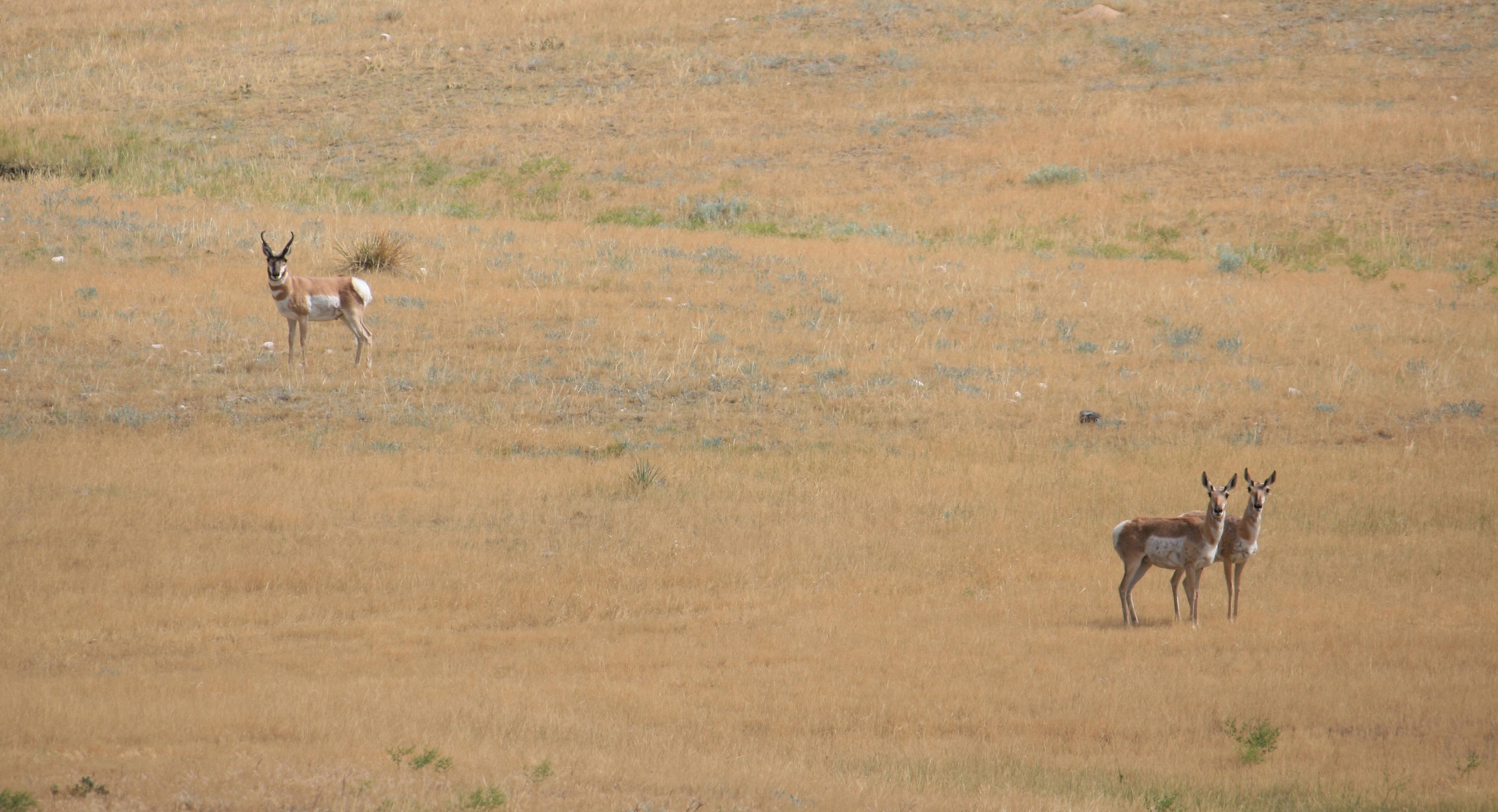



Located 15 miles south of Lusk, WY and nestled between a well-maintained county road and the infamous Rawhide Buttes lies the Rawhide Buttes Pastures. Consisting of 703± acres of mostly rolling grasslands, rock outcroppings, cedars and deep cut draws, this tract of land is perfect for starting your next cattle operation. For the recreationalist, the northern and western borders of the property adjoin an additional 642 acres of landlocked BLM ground granting hunting/hiking access to the largest of the buttes. Trophy mule deer and pronghorn are regularly harvested on the ranch as well as great opportunities for elk and mountain lion.





The ranch is located in northern Goshen County near the county line with Niobrara County or roughly 15 miles southwest of Lusk, WY. Distances to other notable areas are listed below:
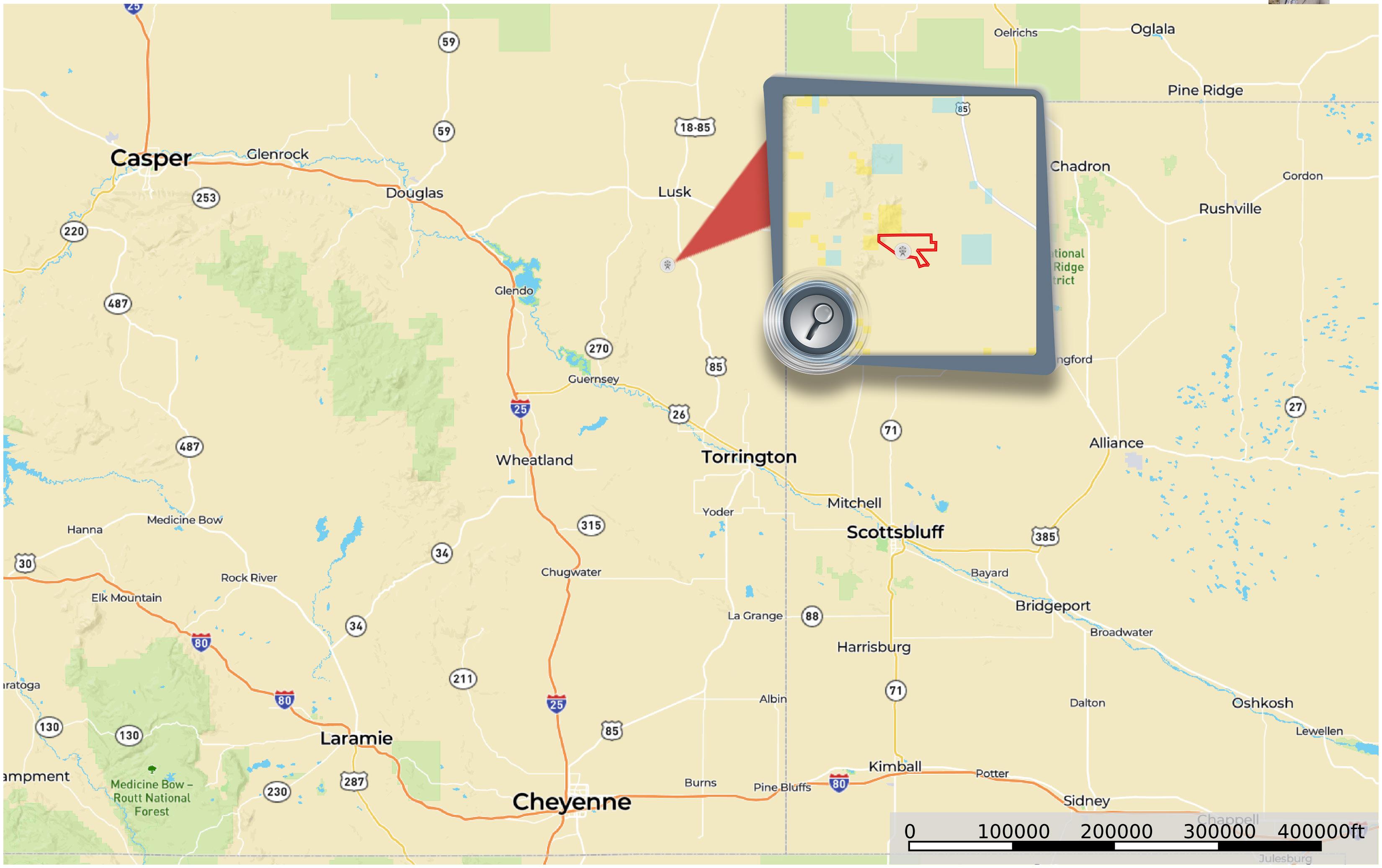
• Torrington, WY- 50 Miles
• Scottsbluff, NE- 82 Miles
• Casper, WY- 119 Miles
• Cheyenne, WY- 134 Miles
• Denver International Airport, CO- 237 Miles
This area of Eastern Wyoming receives around 16.5 inches of precipitation annually with average daily temperatures in the high 80’s during the summer months and mid 30’s during the winter. Elevations on the ranch vary from 5,000 to 5,700 feet above sea level.




Lusk, Wyoming, is the nearest town to the property and has everything you would need including a grocery store, fuel station, and a fantastic school system. Torrington and Lingle are a short drive to the southeast and also provide great amenities. For your travel needs, there is a small airport for private use just outside of Lusk, with airports providing service to multiple areas of the country located in Scottsbluff, Cheyenne, and Casper. Denver International Airport is just a few hours’ drive from the ranch.
Due to their geographical visibility, abundance of wildlife, and large variety of tress and grasses, the Rawhide Buttes are steeped in historical prevalence. Originally a camping area for Native Americans and fur trappers, the Buttes served as a gathering place and major trading location on the western plains. After gold was discovered in the Black Hills in the late 1800’s, a stage stop was created at the base of the Buttes and served the area for nearly a decade until the great American Railroad had become the prominent means of transportation. Other nearby historical trails include the Texas Trail and the Cheyenne-Deadwood Trail. The remnants of days gone by are still found on the ranch in the form of arrowheads, teepee rings, and various other historical artifacts.
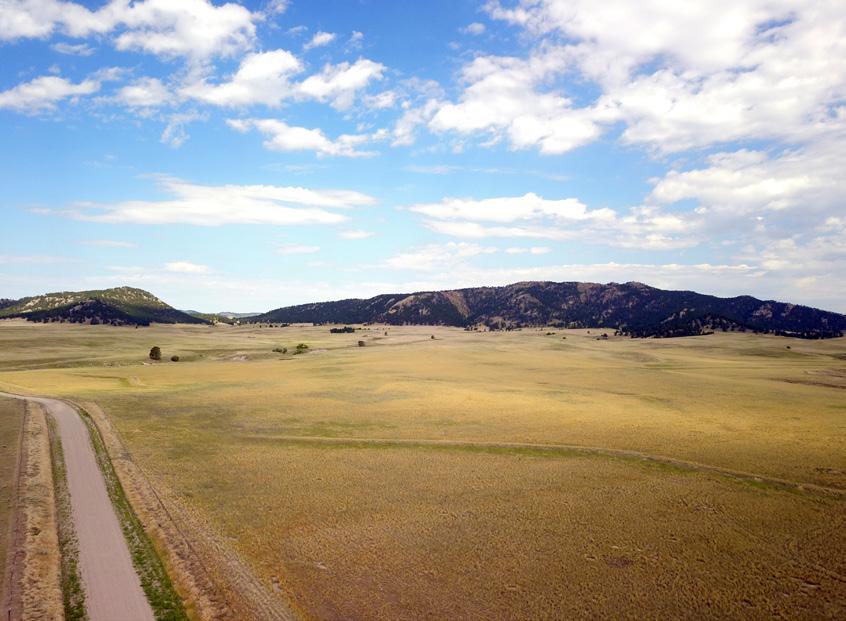
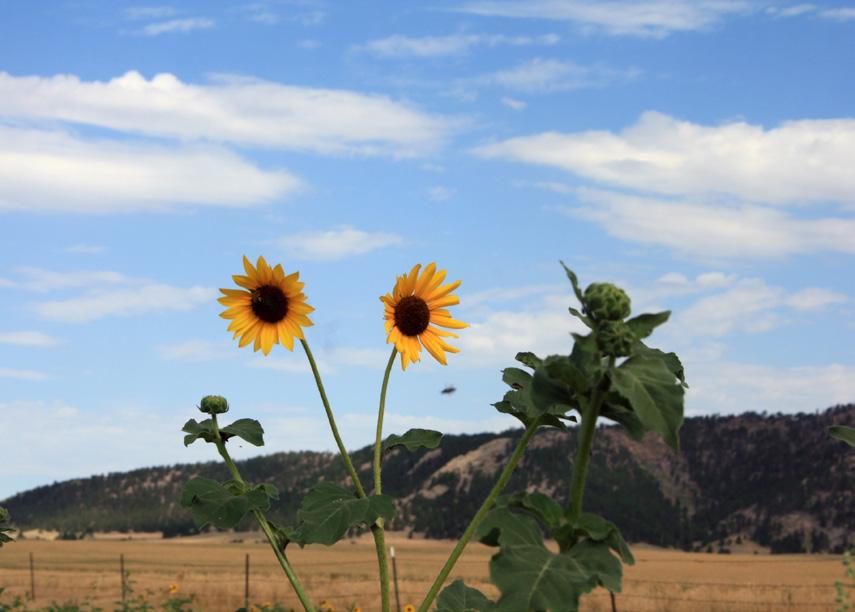
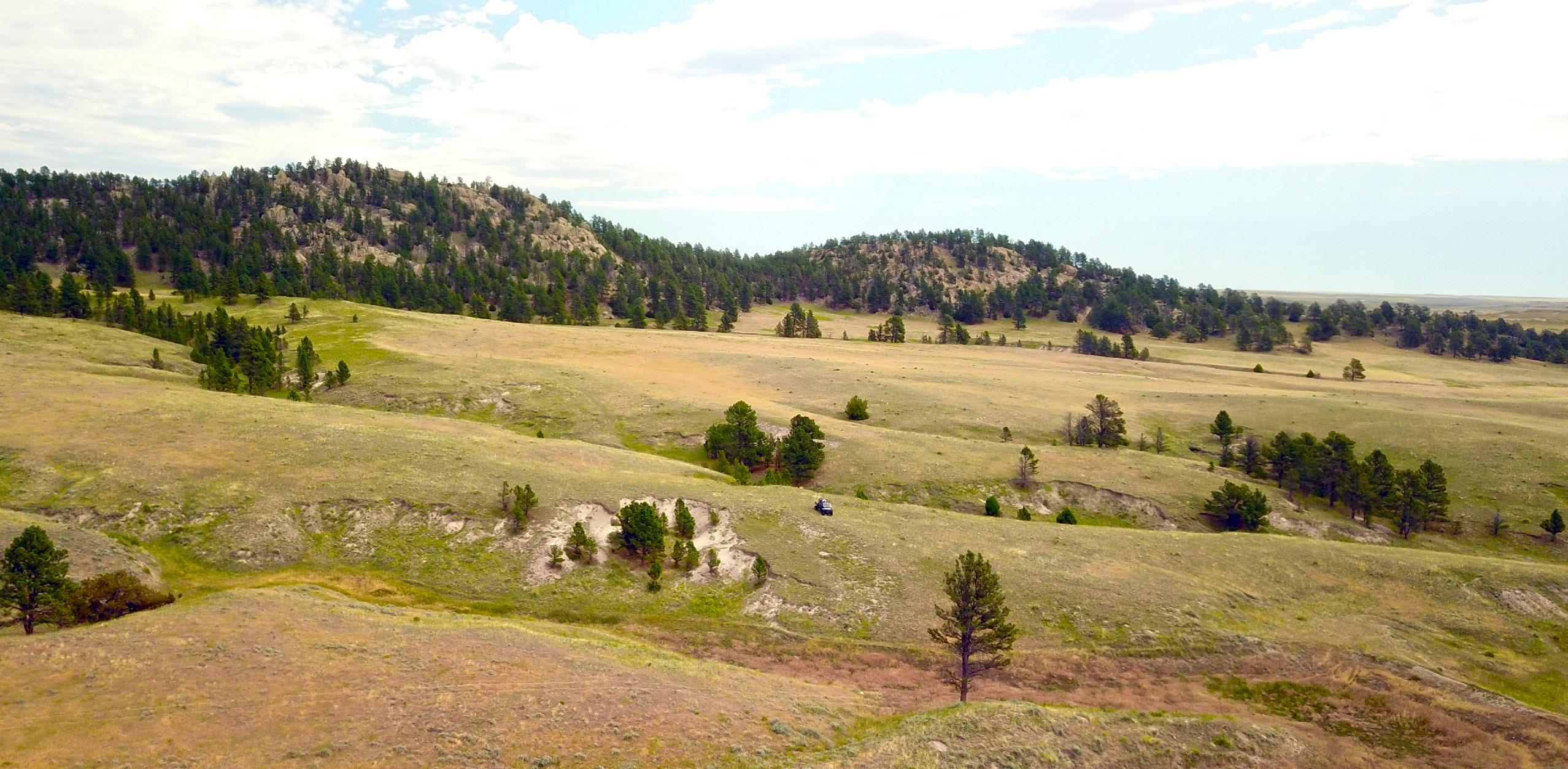
Wyoming is a landlocked state in the western United States. The 10th largest state by area, it is also the least populous and second most sparsely populated state in the country. It is bordered by Montana to the north and northwest, South Dakota and Nebraska to the east, Colorado to the south, Utah to the southwest, and Idaho to the west. The state population was estimated at 576,850 in 2020, which is less than 31 of the most populous U.S. cities. The state capital and the most populous city is Cheyenne, which had an estimated population of 65,132 in 2020.
Wyoming’s western half is mostly covered by the ranges and rangelands of the Rocky Mountains, while the eastern half of the state is high-elevation prairie called the High Plains. Almost half of the land in Wyoming is owned by the U.S. government, leading Wyoming to rank sixth by area and fifth by proportion of a state’s land owned by the federal government. Federal lands include two national parks—Grand Teton and Yellowstone—two national recreation areas, two national monuments, several national forests, historic sites, fish hatcheries, and wildlife refuges.
Original inhabitants of the region include the Arapaho, Crow, Lakota, and Shoshone. Southwest Wyoming was claimed by the Spanish Empire and then as Mexican territory until it was ceded to the U.S. in 1848 at the end of the Mexican–American War. The region acquired the name “Wyoming” when a bill was introduced to Congress in 1865 to provide a temporary government for the territory of Wyoming. The name had been used earlier for the Wyoming Valley in Pennsylvania, and is derived from the Munsee word xwé:wamənk, meaning “at the big river flat”.
The cost of living in Wyoming is below the national average and the average energy cost is the second lowest in the nation. Wyoming also ranks among the top ten in the United States for education, and consistently ranks in the top 20 for retirement and livability.
Wyoming offers an extremely favorable tax climate:
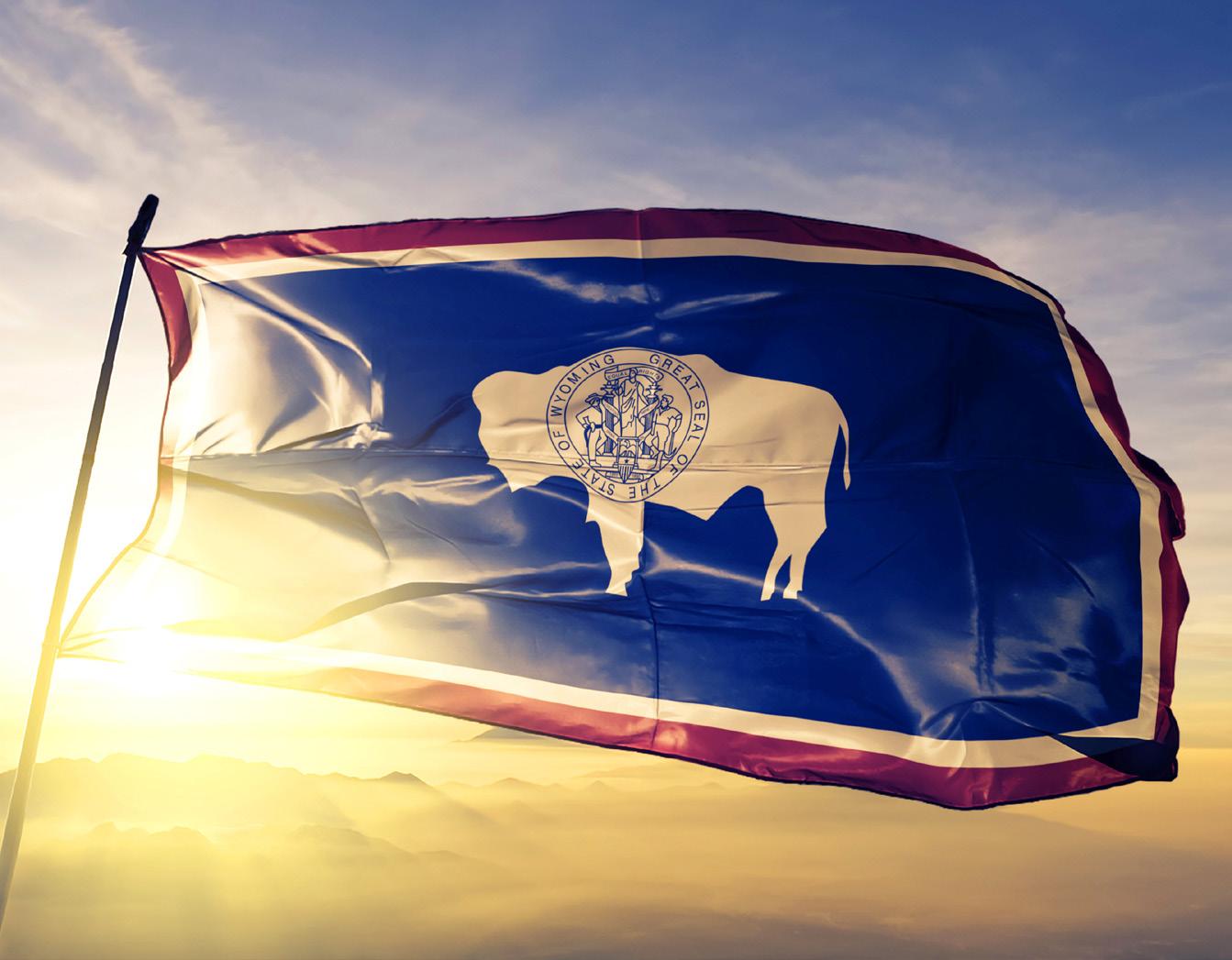
No personal income tax
Low property tax
Favorable inheritance tax
Low retail sales tax
No corporate income tax
gross receipts tax
inventory tax
Favorable unemployment tax
The main drivers of Wyoming’s economy are tourism and extraction of minerals such as coal, oil, natural gas, and trona. Agricultural commodities include livestock, hay, sugar beets, grain (wheat and barley), and wool.
The approximate value added to Wyoming’s economy by the agricultural sector was $1.50 billion in 2020 and has been above the $1 billion threshold since 2003. Of that total, animals and animal products accounted for $1.08 billion, crops totaled $351 million, and farm-related income accounted for $339 million. In 2017, 11,400 farms and ranches used 30.2 million acres to raise agricultural products in Wyoming. Farmer and rancher cash receipts totaled $1.44 billion. Cattle and calves ranked as the largest livestock commodity raised in the state, followed by hogs and sheep. Hay was the largest crop raised, followed by sugar beets and corn.
Wyoming ranks 15th in the nation for beef cow numbers, fourth in the nation for sheep and lamb production, and is number one in the nation for average size of farm.
ranchandrecreation.com








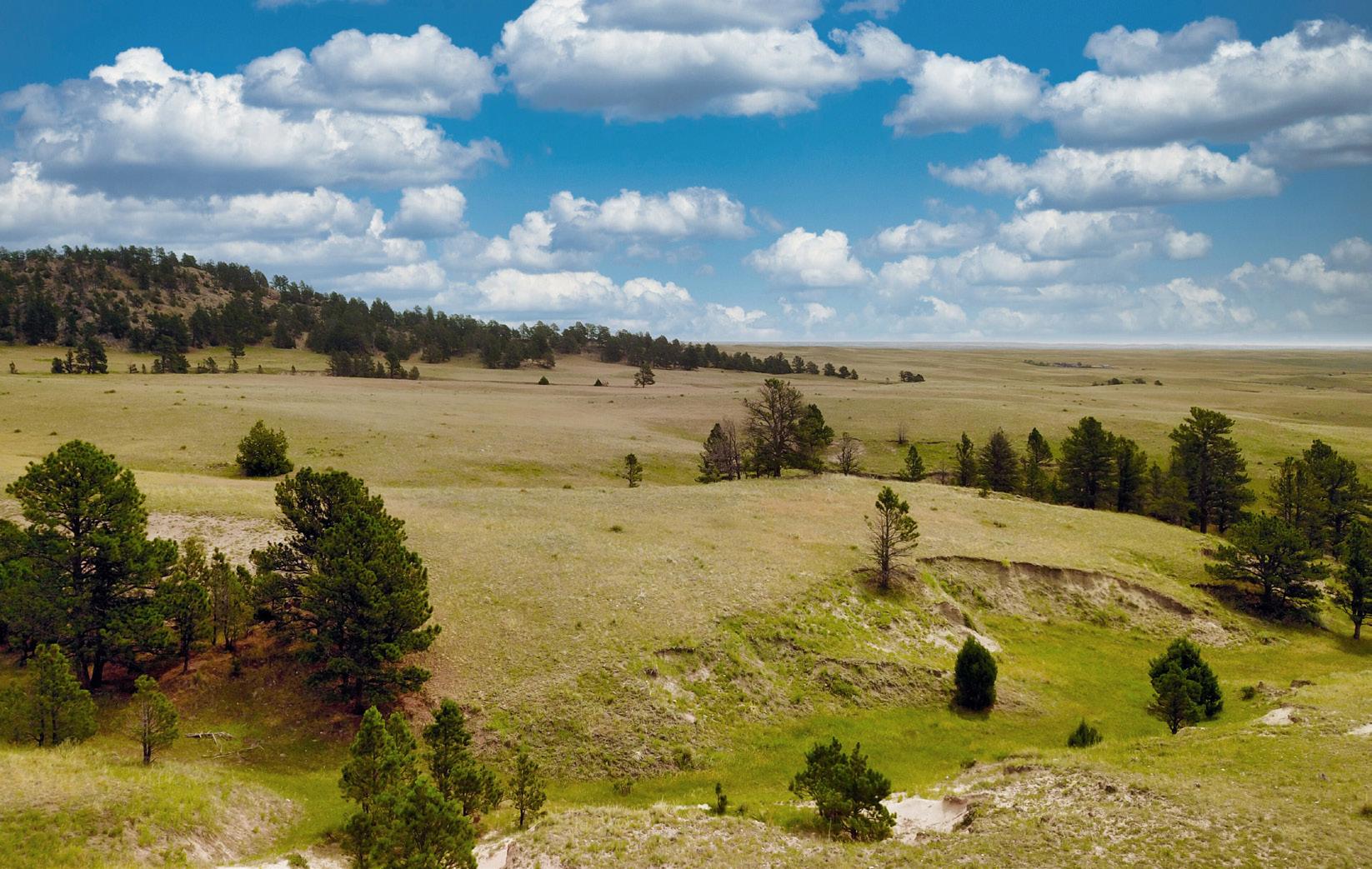
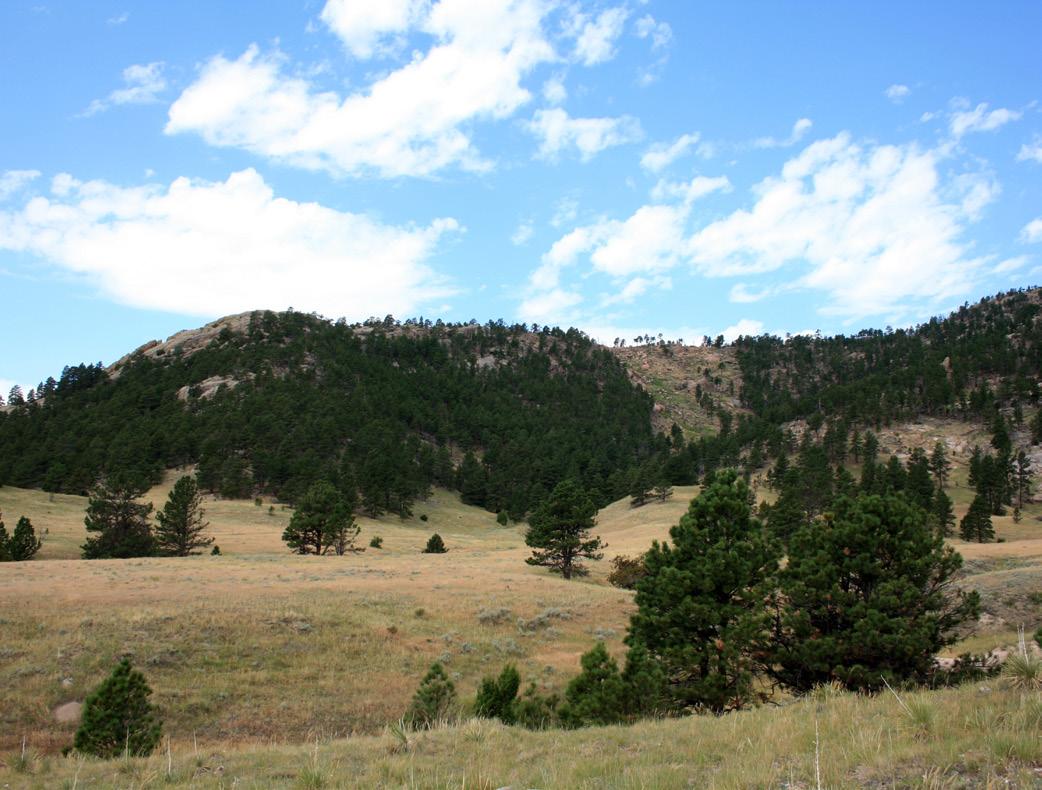
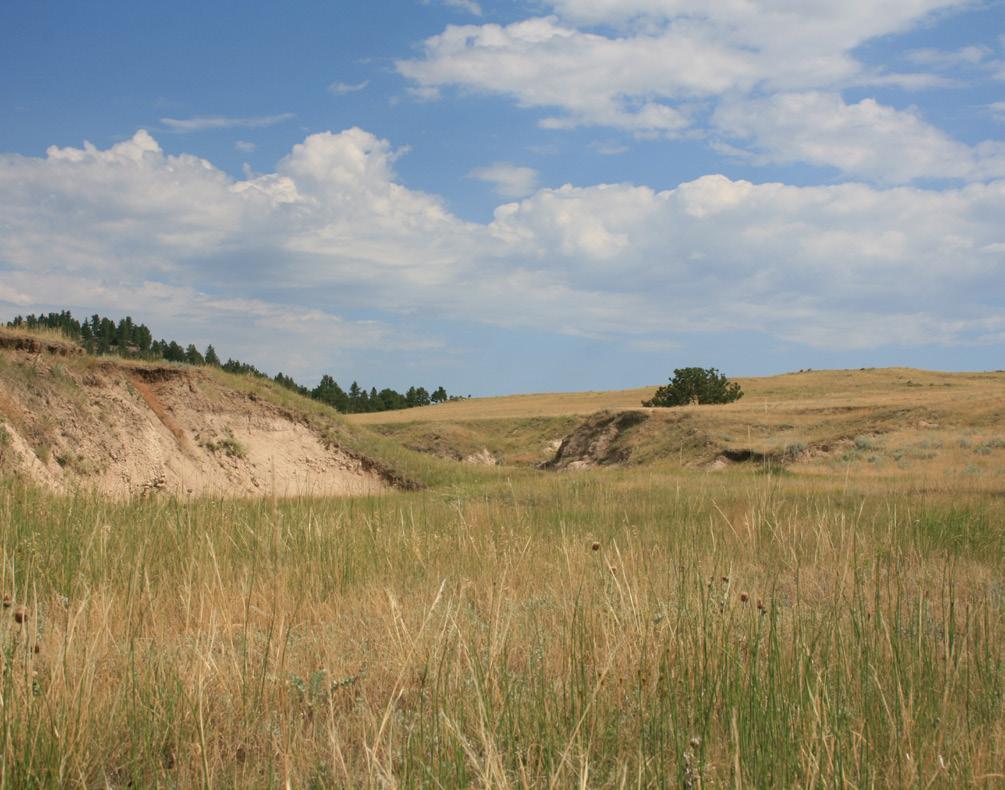
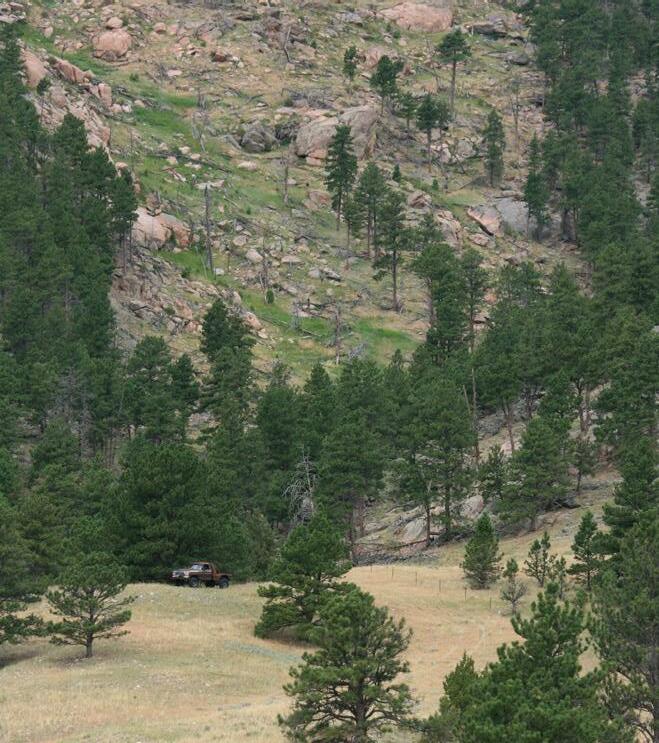
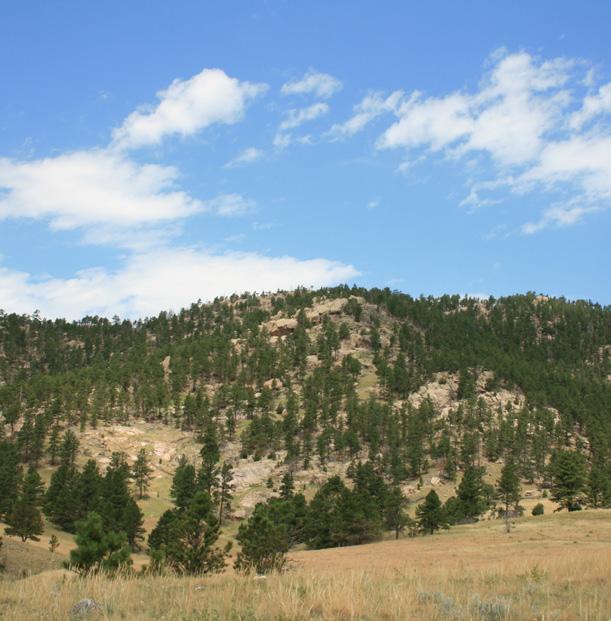
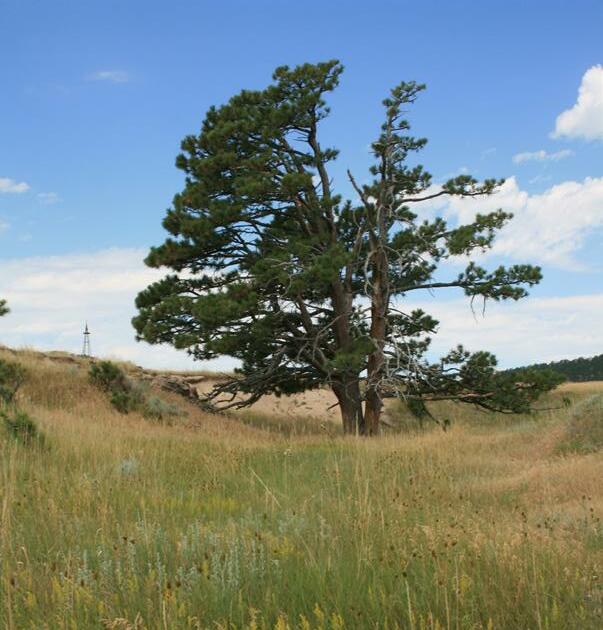
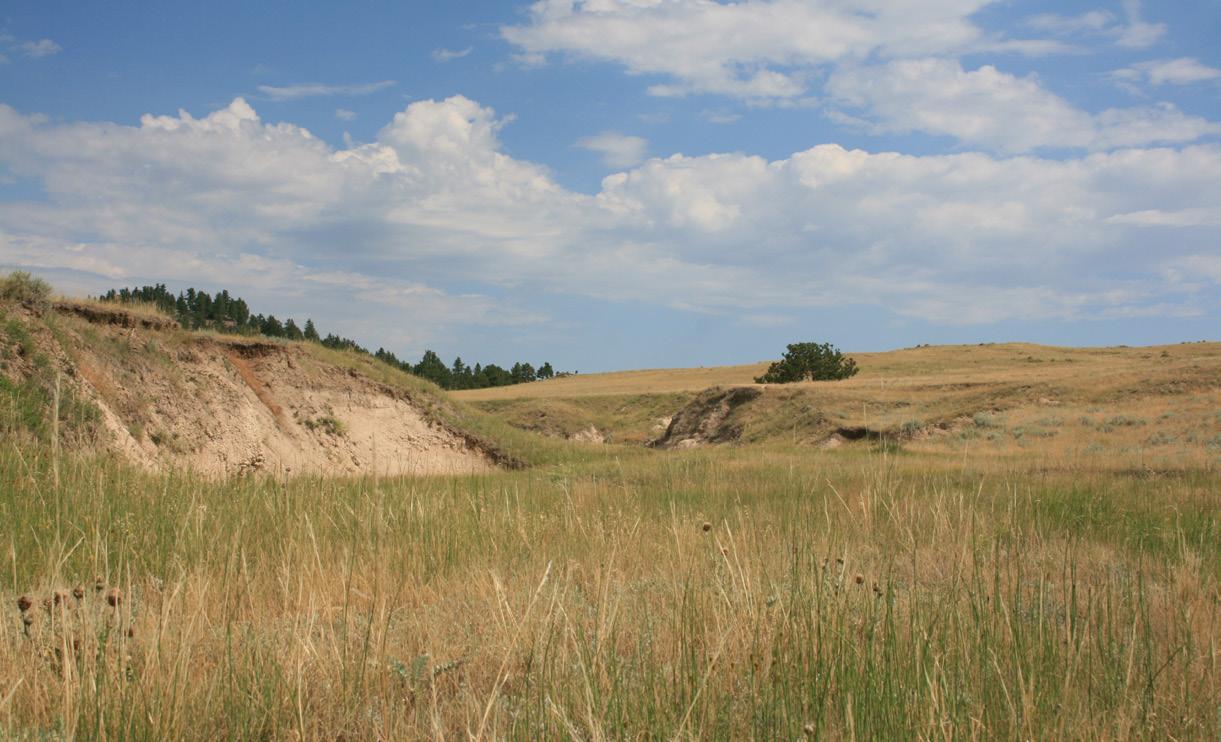
Hunting opportunities on the ranch are fantastic. Mule deer and pronghorn are numerous, and you may also have the chance of harvesting elk, mountain lion, doves, rabbits, and grouse. Many of the licenses are relatively easy to draw or are available over-thecounter. Landowner tags may also be available for multiple species.
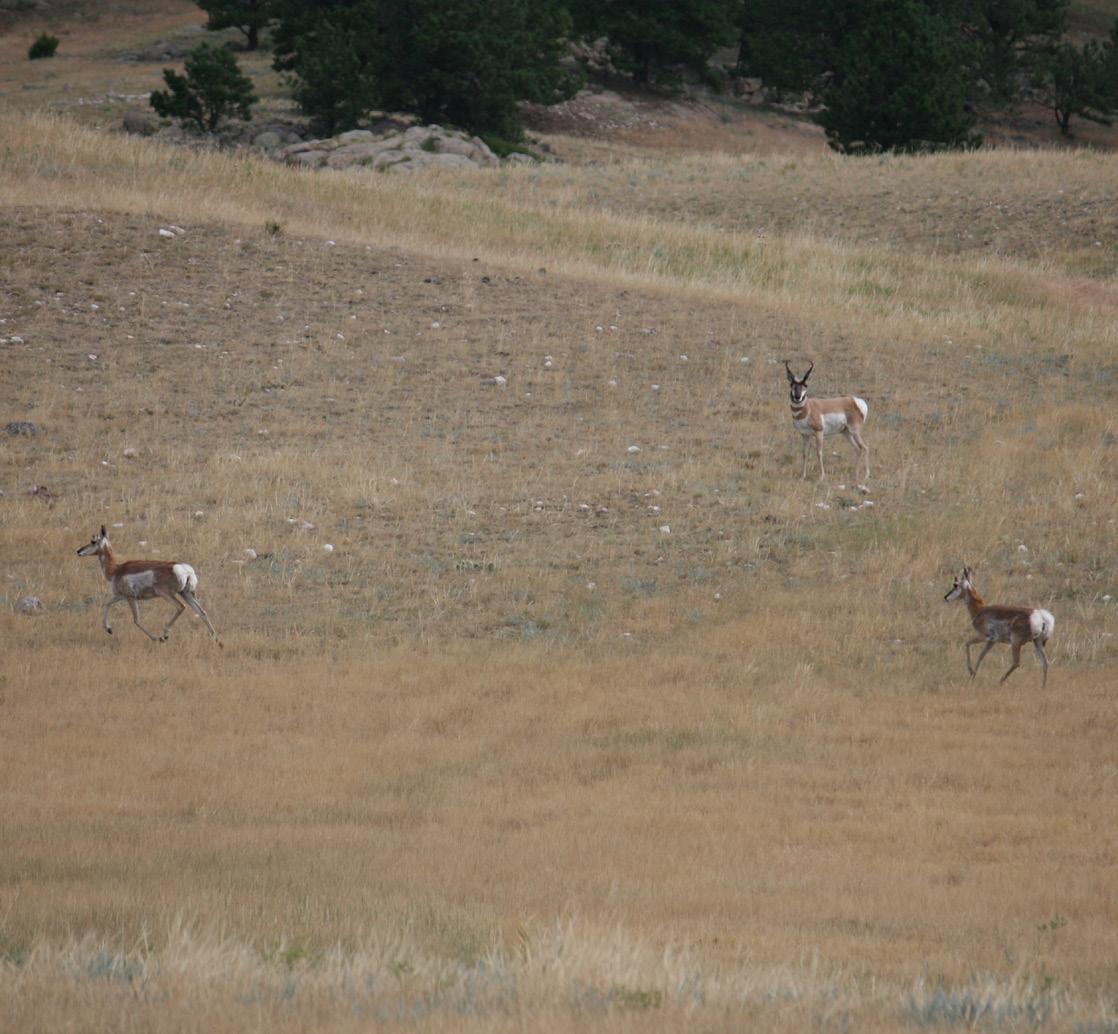
• Antelope area 11,


• Deer area 15 for residents, General region T for non-residents
• Elk area 3
This property has historically been used for grazing cattle and horses during the summer months. The different types of grass prevalent in this area typically provide great weight gain rates for yearling cattle due to their high protein content. This acreage is owner-rated at around 60 pairs or 100+ yearlings for several months.


Water is supplied by several seasonal springs which occasionally feed a large reservoir and for the drier years, a windmill/well is located on the property. Access to a shared well/pipeline is also an option.
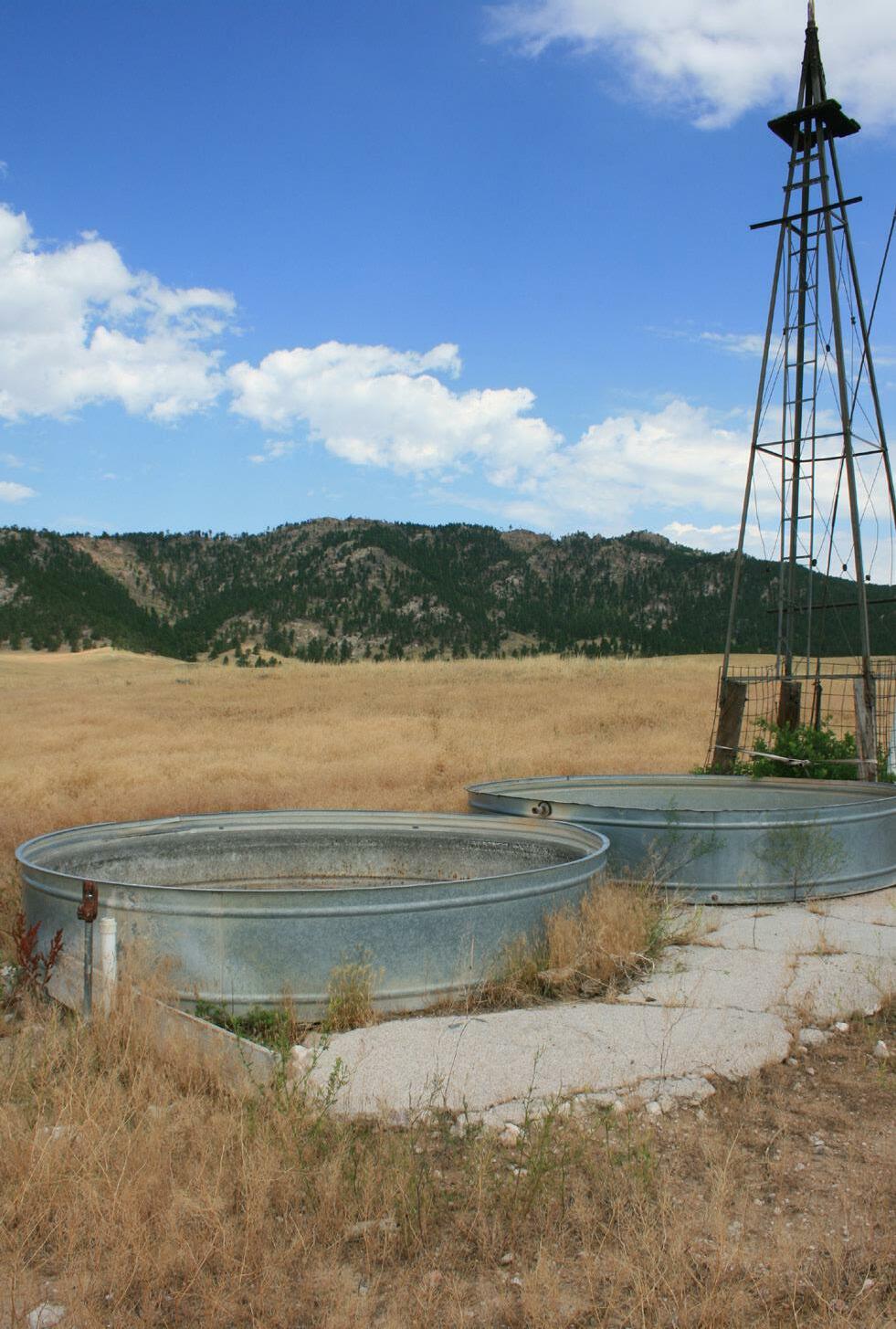
















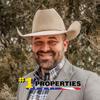
All




shall be in writing and
earnest
Seller
to provide and pay for an
be
by an Earnest money deposit of $100,000 (one hundred thousand dollars)
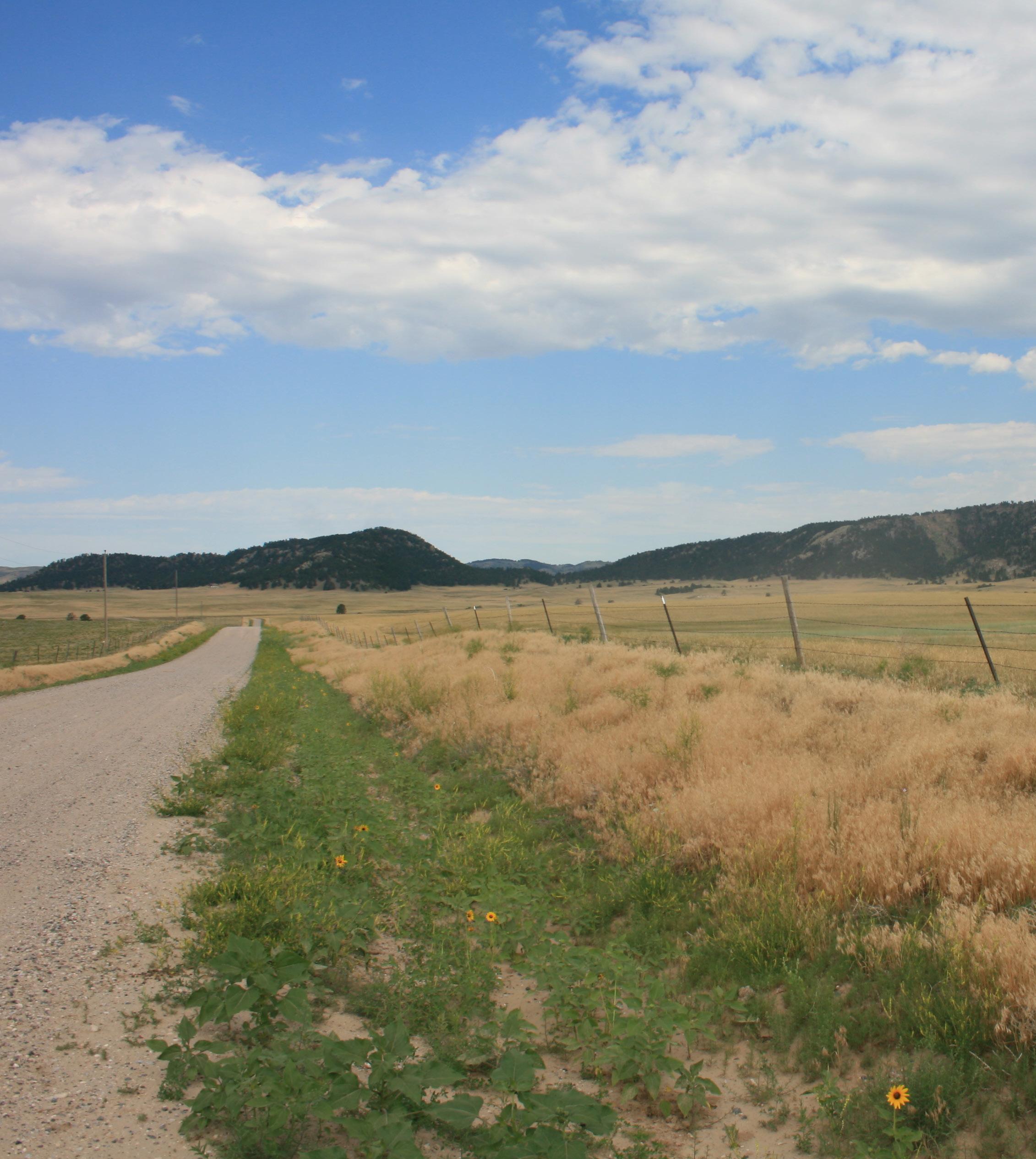
the
in the Listing Broker’s trust account.
title
their
policy in full satisfaction of the purchase price.
attorneys’
Cliff is a fourth generation Wyoming resident, born and raised in the small community of Thermopolis and now calling the southeast part of the cowboy state home. A dedicated athlete growing up, he was an accomplished wrestler and football player. These sports taught him the value of hard work, mental toughness and perseverance which he carries with him to his real estate career.
Cliff’s passion for the outdoors was instilled in him from a very young age and continues to grow. He is a devoted hunter and has hunted all over the United States as well as Canada and Africa. His vast knowledge of the hunting industry, wildlife management and hunting opportunities across the Rocky Mountain region combined with his years of experience as a professional hunting guide give him the tools to help you in your next investment. He is a dedicated supporter of 4H, FFA and numerous other organizations as well as a member of the local, state and national association of Realtor’s and the Realtor’s Land Institute.
Cliff and his wife Shannon spend their family time taking their three children to livestock shows, rodeos and hunting trips across the region. He has a tremendous passion for the western way of life and will always bring honesty, integrity and a sincere handshake to the transaction.
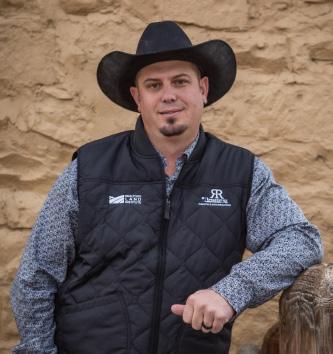
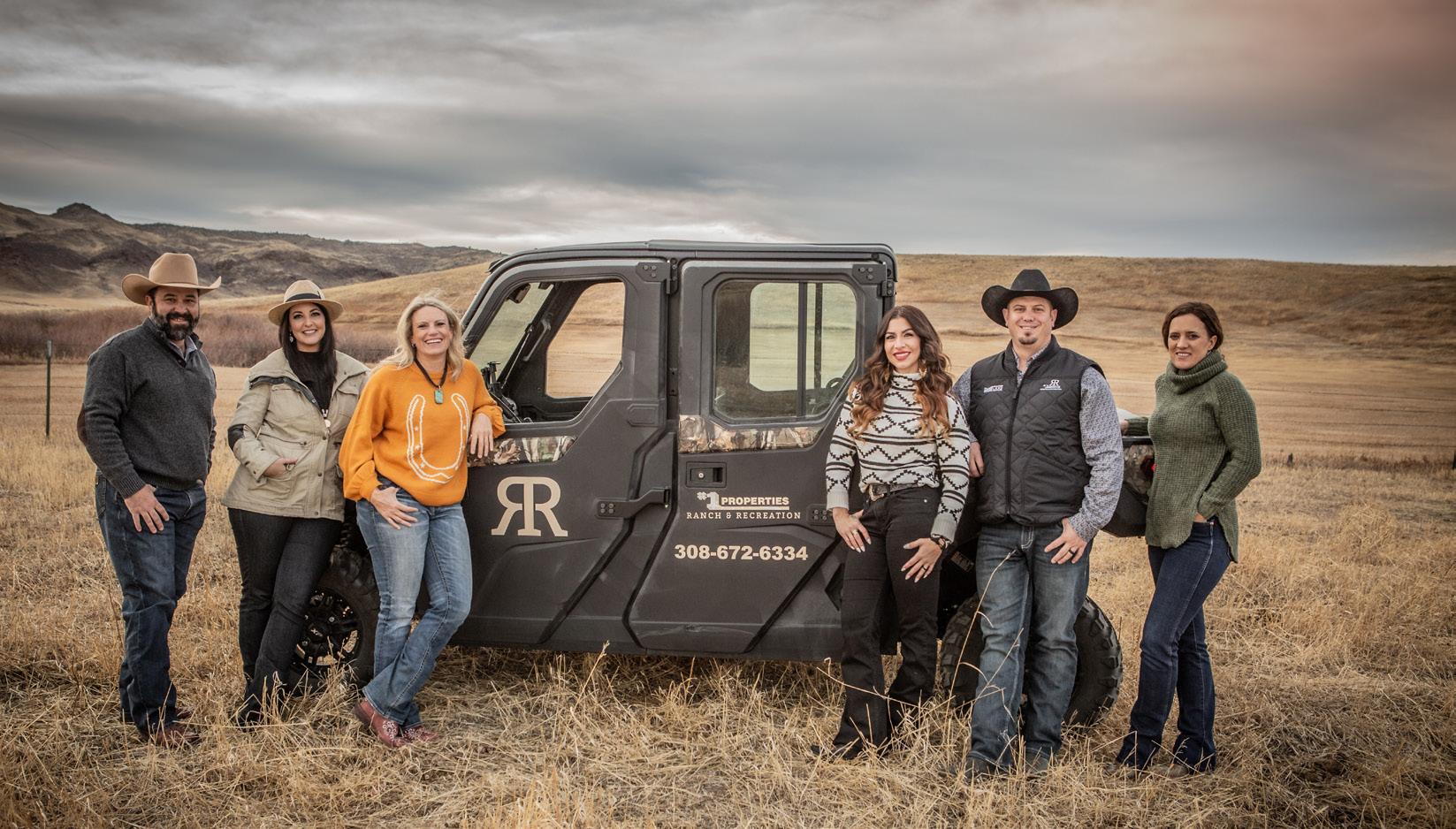
Our team consists of experienced, knowledgeable farm and ranch experts with the networking and marketing power of Wyoming’s #1 real estate brokerage. We know that every farm, ranch, and recreation property is unique, and we customize an individual marketing plan to maximize exposure locally, regionally, and nationally. Capturing the highest price in the shortest amount of time requires a plan to be in place, a market strategy, and someone to run with it. By using a comprehensive marketing program of print media, digital tools, mailings, and networking, we have a proven record of successfully promoting and selling properties of every shape and size.
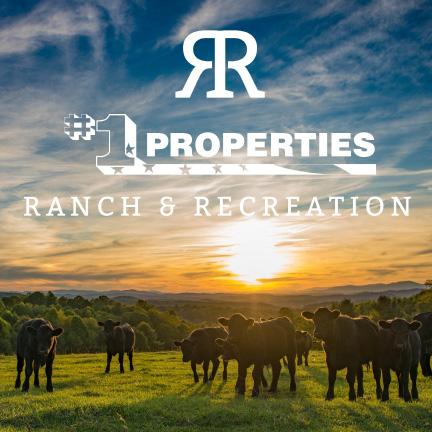
Please note: Offering is subject to errors, omissions, prior sale, change or withdrawal without notice and approval of purchase by owner. All information regarding land classifications, acreages, building measurements, carrying capacities, potential profits, etc, are intended only as general guidelines and have been provided by sources deemed reliable, but whose accuracy we cannot guarantee. Prospective buyers should verify all information to their complete satisfaction.


